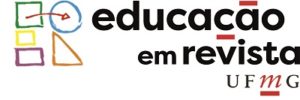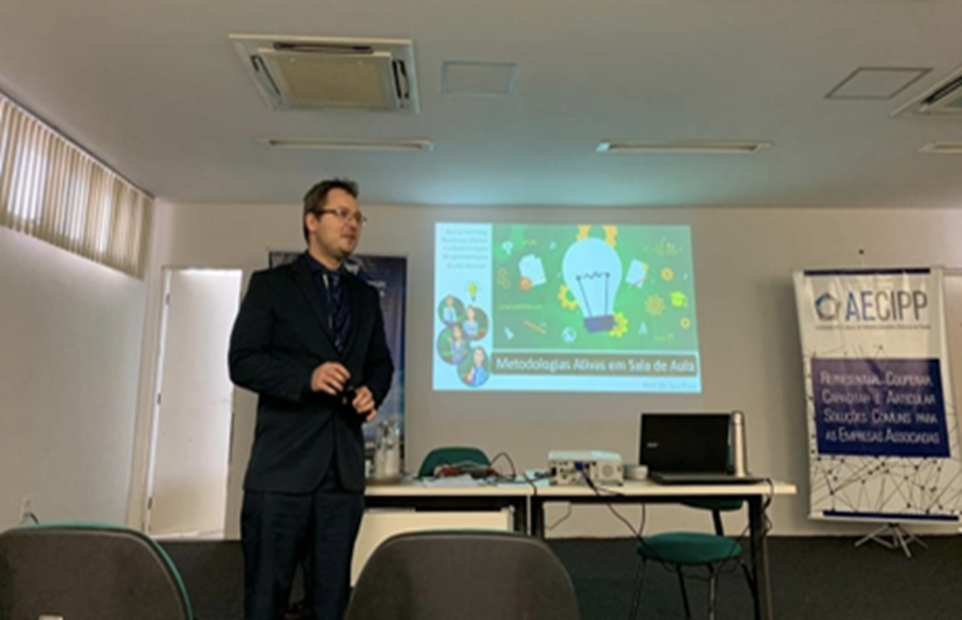Everton Barbosa Nunes, Faculty Member at the Federal Institute of Education, Science, and Technology of Ceará (IFCE), Pecém (CE), Ceará, Brazil.
Antônio Marcos da Costa Silvano, Federal Institute of Education, Science, and Technology of Ceará (IFCE), Cedro (CE), Ceará, Brazil.
School dropout is a complex phenomenon with multiple interrelated causes, which can lead to school failure. Although there is a great deal of research on this subject, it is essential to delve even deeper, as the peculiarities and specific policies of each situation can contribute significantly to students staying in school. This reveals the urgency of intensifying studies in the area to develop effective strategies against dropout, including monitoring the results.
In order to explore this issue, the article The influence of teaching pedagogical practices on student evasion in a technical course, recently published in the journal Educação em Revista (vol. 40, 2024), brings reflections on pedagogical practices and student evasion in the context of the Electromechanics Technical Course at the Instituto Federal do Ceará (IFCE), Campus Pecém. It presents reports on the course’s pedagogical experiences, along with a description of the intervention activities carried out, to verify their contribution to reducing student dropout between 2017 and 2020.
As an outcome of Everton Barbosa Nunes’ specialization research (2020), the study found that the increase in the number of enrolments in recent years has led to the emergence of various barriers to student retention, with school dropout emerging as one of the main bottlenecks for educational institutions. Specifically, in the Electromechanics Subsequent Technical Course, high dropout rates have been observed in recent semesters, arousing great concern, and motivating the study and deepening of this theme.
In this scenario, there has been significant dissatisfaction on the part of students due to the difficulty of reconciling work and studies, resulting in a reduction in learning. This shows that pedagogical practices and the teaching-learning process are key factors in combating dropout and are a constant concern for professors on campus.
In recent years, research has been carried out to measure the factors that have the greatest impact on student performance. The results showed that the professor was the most significant element in student learning, with the “professor effect” being more influential than other factors, such as the school, the family, and the students’ socio-economic situations.
Figure 1. Lecture on the topic “Active Methodologies in the Classroom” held at the Pedagogical Meeting.
In the educational process, it is essential to continuously monitor students’ learning process, promote interdisciplinarity, apply Ausubel’s concept to make content meaningful, adopt active methodologies (Figure 1) and integrate technologies into teaching. Moreover, it is important to consider the heterogeneity of the classes, avoiding the use of a fixed teaching methodology and remaining attentive to the transformation of scientific knowledge into school knowledge.
However, for this work to take place, it is also necessary for the professionals linked to the educational institution to be aware of the problem of dropout. Thus, to achieve the expected result, students must establish an open dialog with professors, so that all difficulties can be understood, with the support of the teaching and technical-pedagogical coordination.
The great importance of pedagogical practices for students to stay on the course is noteworthy, as they make a significant contribution to the teaching and learning process. It is also clear that more action needs to be taken to reduce dropout from the course. Despite the concern about the issue and the implementation of various activities to minimize this phenomenon, this is not enough to reduce the problem considerably.
It is essential to train professors with pedagogical recycling programs, aiming not only to improve the methodologies used, but also the relationship between professors and students. Furthermore, it is essential to develop and implement retention and success programs, increase the offer of scholarships – such as training assistance, monitoring, the Institutional Program for Scientific Initiation Scholarships, Junior (PIBIC Jr.) – and more events to publicize the course. Other measures, such as intensifying reorientation activities for students who are already inserted in the academic environment and who are uncertain about remaining on the course, and constantly discussing the curriculum are equally necessary to face the problem.
The authors participated in an open peer review experience with the aim of presenting the research and having a space to debate the proposed topic. This opportunity for discussion was very rewarding and inspiring, contributing to the advancement of the work and greater adherence to Open Science.
Watch below the video by Paula Francisca da Silva, reviewer of the article and author of the evaluative review Permanence and evasion in the federal network of professional, scientific and technological education: a necessary debate, on the open peer review process.
Educação em Revista Special Week
- Contributions of Educação em Revista for the advance of Open Science in Brazil
- Educação em Revista celebrates 39 years of publishing academic research: interview with the Editor
- Collective constructions: open peer review of an article on indigenous literature
- Pedagogical practices for student retention
- How do young people experience the democratization of access to higher education?
- Web platform can revolutionize the essay correction process
- The Open University of Brazil in the management of student permanence in Pedagogy courses
- Educação em Revista: editorial challenges and scientific possibilities
References
AFONSO, A.M.M. and GONZALEZ, W.R. C. Educação Profissional e Tecnológica: análises e perspectivas da LDB/1996 à CONAE 2014. Ensaio: avaliação de políticas. públicas educacionais [online]. 2016, vol. 24, no. 92, pp. 719-742 [viewed 05 June 2024]. https://doi.org/10.1590/S0104-40362016000300009. Available from: https://www.scielo.br/j/ensaio/a/PsKggmVFGVTcXZzV3r8TqBP/
ARAÚJO, E.B. and LIMA, A.M. O estado da arte sobre evasão escolar nos institutos federais: uma contribuição para a construção de saberes e práticas. Revista Labor [online]. 2021, vol. 1, no. 26, pp. 54-75 [viewed 05 June 2024]. https://doi.org/10.29148/labor.v1i26.71839. Available from: http://www.periodicos.ufc.br/labor/article/view/71839/197527
BACICH, L. and MORAN, J. Metodologias ativas para uma educação inovadora: uma abordagem teórico-prática. Porto Alegre: Penso, 2017.
BASTOS, O.G.A. and GOMES, C.F.S. A evasão escolar no Ensino Técnico: entendendo e enfrentando as dificuldades: Um estudo de caso do CEFET-RJ. Revista Educação e Cultura Contemporânea [online]. 2016, vol. 13, no. 32 [viewed 06 February 2024]. Available from: http://periodicos.estacio.br/index.php/reeduc/article/viewArticle/1133
CHAGAS, MR. and OLIVEIRA, B.A.S. Determinantes da evasão dos alunos do curso técnico subsequente. Revista Educação Pública [online]. 2020, vol. 20, no. 22 [viewed 05 June 2024]. Available from: https://educacaopublica.cecierj.edu.br/artigos/20/22/determinantes-da-evasao-dos-alunos-do-curso-tecnico-subsequente
FEITOSA, M.S. Evasão escolar na educação profissional, científica e tecnológica: reflexões e possibilidades de enfrentamento [online]. Releia: Repositório de Leituras Abertas do Instituto Federal do Sertão Pernambuco. 2020 [viewed 05 June 2024]. Available from: http://releia.ifsertao-pe.edu.br:8080/jspui/handle/123456789/629
FROTA, I.R. Andragogia na educação profissional: Contribuições e Desafios [online]. Repositório Institucional da Universidade Federal do Ceará. 2010 [viewed 05 June 2024]. Available from: http://www.repositorio.ufc.br/handle/riufc/41596
MOREIRA, L.K.R, LAMBERT, A.S. and CASTRO, R.C.A.M. Educação profissional e tecnológica: permanência e evasão em foco. Revista Brasileira de Educação e Saúde [online]. 2018, vol. 8, no. 4, pp. 48-53 [viewed 05 June 2024]. https://doi.org/10.18378/rebes.v8i4.5988. Available from: https://www.gvaa.com.br/revista/index.php/REBES/article/view/5988/5348
SILVA, P.F.D. Permanência e evasão na rede federal de educação profissional, científica e tecnológica: um debate necessário. Educ. rev. [online]. 2024, vol. 40, e48056 [viewed 05 June 2024]. https://doi.org/10.1590/0102-469848056. Available from: https://www.scielo.br/j/edur/a/njTNCLcvVdq7QQbkThSSXMc/
ZANIN, A.J.D.P.C. Abandono e permanência escolar na educação profissional e tecnológica: olhares de trabalhadores da educação do Instituto Federal de Santa Catarina. Repositório Institucional da Universidade Tecnológica Federal do Paraná (RIUT). 2019 [viewed 05 June 2024]. Available from: http://repositorio.utfpr.edu.br/jspui/handle/1/4665
To read the article, access
NUNES, E.B. and SILVANO, A.M.C. Práticas Pedagógicas e Evasão Discente: Uma Análise no Curso Técnico. Educação em Revista [online]. 2024, vol. 40, e36039 [viewed 05 June 2024]. https://doi.org/10.1590/0102-469836039. Available from: https://www.scielo.br/j/edur/a/DdjyS8p3JzKJMV6RfdrLFpf/
External links
Educação em Revista – EDUR: www.scielo.br/edur/
Educação em Revista – Site | Instagram | Twitter | LinkedIn
Translated from the original in Portuguese by Lilian Nassi-Calò.
Como citar este post [ISO 690/2010]:

















Recent Comments